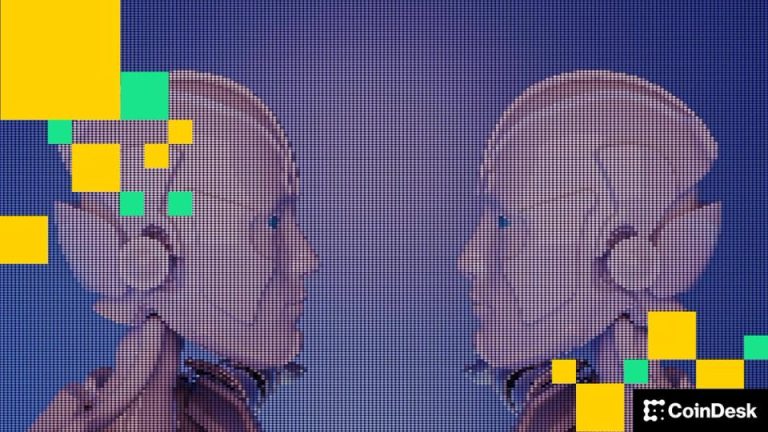AI agents, software systems that use AI to pursue goals and complete tasks on behalf of users, are proliferating. Think of them as digital assistants that can make decisions and take actions towards goals you set without needing step-by-step instructions — from GPT-powered calendar managers to trading bots, the number of use cases is expanding rapidly. As their role expands across the economy, we have to build the right infrastructure that will allow these agents to communicate, collaborate and trade with one another in an open marketplace.
Big tech players like Google and AWS are building early marketplaces and commerce protocols, but that raises the question: will they aim to extract massive rents through walled gardens once more? Agents’ capabilities are clearly rising, almost daily, with the arrival of new models and architectures. What’s at risk is whether these agents will be truly autonomous.
Autonomous agents are valuable because they unlock a novel user experience: a shift from software as passive or reactive tools to active and even proactive partners. Instead of waiting for instructions, they can anticipate needs, adapt to changing conditions, and coordinate with other systems in real time, without the user’s constant input or presence. This autonomy in decision-making makes them uniquely suited for a world where speed and complexity outpace human decision-making.
Naturally, some worry about what greater decision-making autonomy means for work and accountability — but I see it as an opportunity. When agents handle repetitive, time-intensive tasks and parallelize what previously had to be done in sequence, they expand our productive capacity as humans — freeing people to engage in work that demands creativity, judgment, composition and meaningful connection. This isn’t make-believe, humanity has been there before: the arrival of corporations allowed entrepreneurs to create entirely new products and levels of wealth previously unthought of. AI agents have the potential to bring that capability to everyone.
On the intelligence side, truly autonomous decision-making requires AI agent infrastructure that is open source and transparent. OpenAI’s recent OSS release is a good step. Chinese labs, such as DeepSeek (DeepSeek), Moonshot AI (Kimi K2) and Alibaba (Qwen 3), have moved even quicker.
However, autonomy is not purely tied to intelligence and decision making. Without resources, an AI agent has little means to enact change in the real world. Hence, for agents to be truly autonomous they need to have access to resources and self-custody their assets. Programmable, permissionless, and composable blockchains are the ideal substrate for agents to do so.
Picture two scenarios. One where AI agents operate within a Web 2 platform like AWS or Google. They exist within the limited parameters set by these platforms in what is essentially a closed and permissioned environment. Now imagine a decentralized marketplace that spans many blockchain ecosystems. Developers can compose different sets of environments and parameters, therefore, the scope available to AI agents to operate is unlimited, accessible globally, and can evolve over time. One scenario looks like a toy idea of a marketplace, and the other is an actual global economy.
In other words, to truly scale not just AI agent adoption, but agent-to-agent commerce, we need rails that only blockchains can offer.
The Limits of Centralized Marketplaces
AWS recently announced an agent-to-agent marketplace aimed at addressing the growing demand for ready-made agents. But their approach inherits the same inefficiencies and limitations that have long plagued siloed systems. Agents must wait for human verification, rely on closed APIs and operate in environments where transparency is optional, if it exists at all.
To act autonomously and at scale, agents can’t be boxed into closed ecosystems that restrict functionality, pose platform risks, impose opaque fees, or make it impossible to verify what actions were taken and why.
Decentralization Scales Agent Systems
An open ecosystem allows for agents to act on behalf of users, coordinate with other agents, and operate across services without permissioned barriers.
Blockchains already offer the key tools needed. Smart contracts allow agents to perform tasks automatically, with rules embedded in code, while stablecoins and tokens enable instant, global value transfers without payment friction. Smart accounts, which are programmable blockchain wallets like Safe, allow users to restrict agents in their activity and scope (via guards). For instance, an agent may only be allowed to use whitelisted protocols. These tools allow AI agents not only to behave expansively but also to be contained within risk parameters defined by the end user. For example, this could be setting spending limits, requiring multi-signatures for approvals, or restricting agents to whitelisted protocols.
Blockchain also provides the transparency needed so users can audit agent decisions, even when they aren’t directly involved. At the same time, this doesn’t mean that all agent-to-agent interactions need to happen onchain. E.g. AI agents can use offchain APIs with access constraints defined and payments executed onchain.
In short, decentralized infrastructure gives agents the tools to operate more freely and efficiently than closed systems allow.
It’s Already Happening Onchain
While centralized players are still refining their agent strategies, blockchain is already enabling early forms of agent-to-agent interaction. Onchain agents are already exhibiting more advanced behavior like purchasing predictions and data from other agents. And as more open frameworks emerge, developers are building agents that can access services, make payments, and even subscribe to other agents – all without human involvement.
Protocols are already implementing the next step: monetization. With open marketplaces, people and businesses are able to rent agents, earn from specialized ones, and build new services that plug directly into this agent economy. Customisation of payment models such as subscription, one-off payments, or bundled packages will also be key in facilitating different user needs. This will unlock an entirely new model of economic participation.
Why This Distinction Matters
Without open systems, fragmentation breaks the promise of seamless AI support. An agent can easily bring tasks to completion if it stays within an individual ecosystem, like coordinating between different Google apps. However, where third-party platforms are necessary (across social, travel, finance, etc), an open onchain marketplace will allow agents to programmatically acquire the various services and goods they need to complete a user’s request.
Decentralized systems avoid these limitations. Users can own, modify, and deploy agents tailored to their needs without relying on vendor-controlled environments.
We’ve already seen this work in DeFi, with DeFi legos. Bots automate lending strategies, manage positions, and rebalance portfolios, sometimes better than any human could. Now, that same approach is being applied as “agent legos” across sectors including logistics, gaming, customer support, and more.
The Path Forward
The agent economy is growing fast. What we build now will shape how it functions and for whom it works. If we rely solely on centralized systems, we risk creating another generation of AI tools that feel useful but ultimately serve the platform, not the person.
Blockchain changes that. It enables systems where agents act on your behalf, earn on your ideas, and plug into a broader, open marketplace.
If we want agents that collaborate, transact, and evolve without constraint, then the future of agent-to-agent marketplaces must live onchain.


